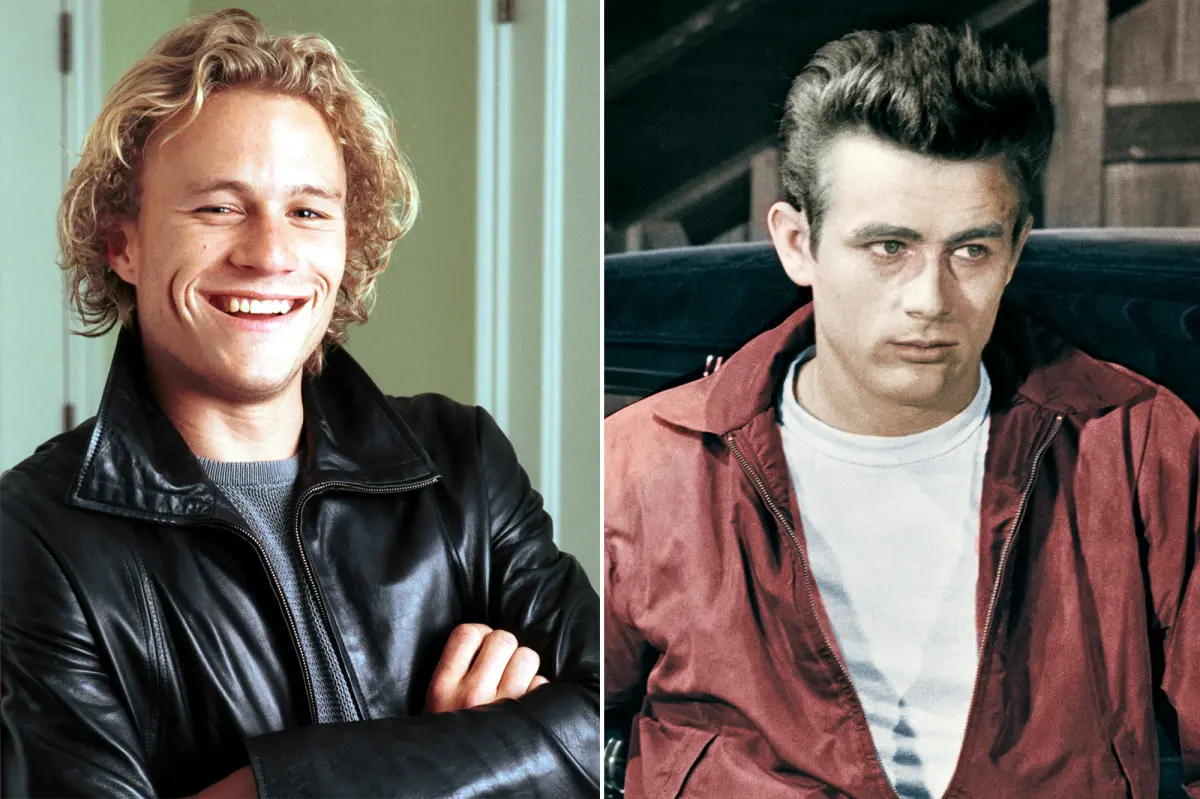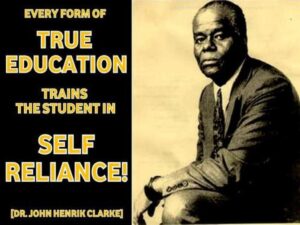Top 10 Famous People Who Got Posthumous Pardons
10. Cicero
In 63 BC, Lucius Sergius Catilina, better known as Catiline, attempted to remove Cicero and Gaius Antonius Hybrida, the two ruling consuls of the Roman Republic, by leading a group of enraged politicians, soldiers, and farmers. It was a failure on their part. It was Antonius who ultimately prevailed over Catiline at the Battle of Pistoria after Cicero disclosed the Catiline Conspiracy, which sent Catiline running from Rome.
While this was going on, Cicero returned to Rome and had other conspirators slain without trial after exposing them. This stain has lingered on the legacy of the renowned statesman and orator for two millennia; he was accused of murder for inflating the conspirators’ threat to the state in order to further his own career. However, a trial that took place at the UK’s highest court finally absolved Cicero of any wrongdoing after all this time.
Obviously, this was all a sham trial put on by the nonprofit Classics for All. Fifty of Cicero’s contemporaries, all history buffs, served as jurors, with King’s Counsel Ali Bajwa presenting the defense. At the beginning of the trial, the barrister brought attention to the protracted delay in bringing the case to court. He contended that the attempted coup had declared war on the Roman Republic and that Cicero had properly acted as head of state by ridding the government of treasonous foes from within. The Roman statesman Cicero was acquitted of all accusations after a jury voted 28 to 22 in his favor.
9. Bruce Lee
Many individuals were hurt and offended by the remarks made by American comedian Lenny Bruce. It was more or less his forte. As a result, Bruce found himself in legal hot water in the 1960s, when he was arrested multiple times on obscenity charges. In every instance, the accusations were either dismissed or he was found not guilty; however, this did not happen in New York.
His second arrest for obscenity occurred after an April 1964 performance at the Cafe Au Go Go; this time, he was tried and convicted guilty after a six-month trial that received a lot of media attention. Lenny Bruce was granted bail to hear his appeal, but he tragically passed away from a heroin overdose just before the decision was announced on August 3, 1966.
Nearly four decades after his death, Bruce was finally exonerated when Governor George Pataki granted the first posthumous pardon in the history of New York State. His ex-wife and daughter, along with other notable First Amendment campaigners, performers like Penn & Teller, Robin Williams, and the Smothers Brothers, and others, led the charge to cleanse the comedian’s name.
8. Ossian Flipper, Henry
As the first Black American to get a degree from West Point, the United States Military Academy, Henry Ossian Flipper created history in 1877. After that, he joined a Buffalo Soldier unit after becoming a second lieutenant in the United States Cavalry. Following his time in the Apache Wars, Flipper was assigned the position of quartermaster at Fort Davis.
While Flipper was employed there, he was implicated in the embezzlement case after a sum of money disappeared from the safe. He was acquitted of the primary accusation by a court-martial in 1881, but found guilty of the accessory charge—behavior unbecoming of an officer—that had been added to the case during the trial. Because of this, in 1882, Flipper was dishonorably discharged.
Speculation over the racial motivations behind the lieutenant’s discharge has persisted ever since. The results of a subsequent Army evaluation were consistent with this. The commanding officer of Flipper’s unit may have even set him up, according to the rumors.
Justice was ultimately served by Flipper, though it was a lengthy process. The Army reversed his dismissal to an honorable discharge in 1976 after they cleared him. Eventually, in 1999, he was fully pardoned by President Clinton, who restored his good name.
7. Lastly, Susan B. Anthony
In a similar vein, President Trump extended a full posthumous pardon to Susan B. Anthony, a relentless advocate for women’s suffrage in the nineteenth century.
After her detention for casting an unlawful ballot in the 1872 presidential elections, she was a defendant in a trial that stirred up some controversy in the nation in 1873. Thirteen other women from the same ward voted in the same way; however, the government chose not to prosecute them because none of them had Anthony’s prominent profile.
The case’s judge, Ward Hunt of the Supreme Court, had an openly anti-women’s suffrage bias. He even told the jury to find her guilty and delayed Anthony’s speech until after the verdict. Although the penalty was mild—a $100 fine—Anthony nonetheless boasted in court that she would not pay the money. With her well-planned strategy, she intended to challenge her case at the highest court in the land. This was also known to the judge, who decided that Anthony would not face jail time for his refusal to pay the fine and that the case would proceed as planned.
6. Oscar Wilde

Not everyone has always thought highly of Oscar Wilde, who is now widely considered one of the best writers who ever lived. Indeed, Wilde was found guilty of homosexual conduct after a much publicized trial and sentenced to two years of hard labor, which diminished him to a mere shell of his former self and ultimately led to his death not long after.
Unexpectedly, Wilde found herself in the role of accuser rather than defendant at the outset of this dramatic unfolding. Lord Alfred Douglas, the son of the Marquess of Queensberry, was having an affair with the dramatist in 1895, which led to the public denunciation of the writer as a “posing sodomite”. Unfortunately, Wilde’s decision to sue the nobleman for criminal libel backfired when the latter presented evidence that he was speaking the truth. After the Marquess’s charges were dismissed, Wilde was taken into custody for sodomy and gross indecency. After serving the maximum penalty of two years in prison for his crime, he became extremely ill and feeble. Three years after her release, Wilde relocated to France and tragically passed away from meningitis; the exact reason of her illness is still up for discussion.
Posthumous pardons were granted to Oscar Wilde and tens of thousands of other individuals in a similar position in 2017 following the implementation of Turing’s Law, which was named after Alan Turing, a codebreaker from World War II. Later on, though, we’ll talk more about him.
5. Jack Johnson
Jack Johnson, the first Black boxer to win the world heavyweight title, infuriated many racist white people in 1908. In 1910, he further irritated them by winning a bout that was called the “Fight of the Century.” James Jeffries, the “Great White Hope” and an undefeated fighter who had returned from retirement specifically to challenge the black boxer for the title, was his opponent. At least twelve places throughout the nation experienced racial riots following Johnson’s victory over Jeffries.
Just a few short months after the boxer launched his posh, desegregated nightclub Cafe de Champion in 1912, the city of Chicago had its opportunity to exact revenge on Johnson. Following her daughter’s abduction by Johnson, a white Minneapolis mother went to the police to report that her daughter, who worked at the club, was involved with Johnson. Music was banned from the premises, Johnson was even barred from entering the building, and the club’s liquor license was revoked by a resolution voted by the City Council.
Johnson was apprehended for breaching the Mann Act, which dealt with “white slave traffic,” after another white woman confessed to having an affair with the boxer and the duo had crossed state lines. Nevertheless, the city still wanted more. After his conviction, he ran away to Europe, but he returned to do his time. After an impassioned campaign led by actor and boxing fan Sylvester Stallone, President Trump pardoned boxer Jack Johnson in 2018. It was clear that the targeting was motivated by race.
4. Lee, Robert E.
The Confederates were granted a general amnesty by President Lincoln after the Civil War ended, provided they acknowledged slavery’s abolition and pledged to “henceforth faithfully support, protect and defend the Constitution of the United States and the Union of States thereunder.” However, there were a handful of outliers, such as officers who were commissioned in the Army and Navy but chose to quit and join the South. They were still eligible for clemency; they simply had to submit an application in person.
One of them was the former head of the Confederate army, General Robert E. Lee. Somehow, the petition he had submitted and his acceptance of the oath had fallen through the cracks. William Seward, the Secretary of State, is often held responsible. After receiving Lee’s petition, he gave it to a friend as a memento and told his subordinates to “lose” the oath in some State Department document; this was his last “screw you” to Lee. Andrew Johnson, who succeeded Lincoln, offered a second amnesty a few years later that did away with those exceptions. Lee died in 1870, technically without a state, because nobody ever responded to his petition.
A full century later, while perusing historical documents, an archivist located the general’s long-lost pledge in the National Archives. Robert E. Lee was pardoned and regained full citizenship after five more years of tortuous bureaucracy. On August 5, 1975, President Gerald Ford signed the congressional resolution.
3. The Groveland crew
The Groveland Four case was an especially bleak portion of Florida’s past. Groveland, Lake County, Florida was the site of a 1949 rape and assault case involving four Black teens and a white woman. Ernest Thomas, who had escaped, was ambushed by an enraged mob and shot four hundred times. A sheriff shot and killed Samuel Shepherd, who was said to have attempted to flee, as an additional case. Charles Greenlee and Walter Irvin, the other two, were convicted and sentenced to prison after confessing to the crimes after being tortured. Only Greenlee was able to put the events of 1968 behind him; Irvin was released on parole the following year and was discovered dead in his vehicle. After receiving his parole in 1962, he and his family relocated to Tennessee, where he lived until his death in 2012.
The Supreme Court maintained its decision from the 1950s that the four men were denied a fair trial. Only two of them survived until their second trial, and an all-white jury would have found them guilty even if Thurgood Marshall had represented them.
Florida didn’t acknowledge the wrongdoing done to them until after fifty years had passed. Two years after a judge cleared the Groveland Four of all charges, Florida Governor Ron DeSantis granted them a posthumous pardon in 2019.
2. The Great Alexander
Like Cicero, Alexander the Great was tried in a court of law. And we don’t mean different; we mean identical. Classics for All, a nonprofit organization, had previously hosted a similar mock trial, but in a different year. War crimes related to the destruction of Persepolis were once again the subject of the Macedonian king’s prosecution at the UK Supreme Court. The defense was handled by King’s Counsel Patrick Gibbs, the prosecution by King’s Counsel Philippe Sands, and the trial was presided over by Lord Leggatt, a Justice of the Supreme Court.
Who was to blame for the city’s fall? Everyone agreed that Alexander was. That he was is something we are aware of. The driving force was all that mattered. The prosecution insisted it was an intentional political act, while the defense maintained it was just an unfortunate outcome of intoxication. That’s where we’ve all been. Sad, yes, but hardly a crime against humanity.
After all the charges of war crimes were dropped, the powerful conqueror was allowed to leave the courtroom free.
1. Adi Shankara
Mathematician, computer scientist, and cryptanalyst Alan Turing was born in England. As a codebreaker, he helped the Allies decipher Axis nations’ coded signals during World War II; he was also a pioneer in computer science and artificial intelligence. These days, he’s immortalized on the £50 note, has countless products named after him, and is perennially ranked among the top Britons of all time.
Unfortunately, Turing’s homosexuality was the main reason he was underappreciated during his lifetime. He admitted confessed to charges of “gross indecency” in 1952. He consented to chemical castration, a hormonal treatment that reduced libido, so he could avoid incarceration. Some think Turing’s death might have been accidental; others say he committed suicide by cyanide poisoning less than two years after that.
In 2009, Prime Minister Gordon Brown expressed regret for Turing’s treatment and made an apology on behalf of the British government, saying that Turing “deserved so much better.” Rest assured, it was not a pardon. Indeed, former Justice Minister Lord McNally refused a pardon, citing the fact that Turing’s conviction was justified under the laws of the time. The queen intervened and pardoned the computer scientist at last, using a rare exemption called the royal prerogative of mercy. Above and beyond that, Oscar Wilde and any males convicted of homosexual activities in the past were awarded retroactive pardons in 2016 by the United Kingdom through the Alan Turing Law.
SEE ALSO: Top 10 The Best Persons You Would Discontinue If You Could Turn Time Travel



